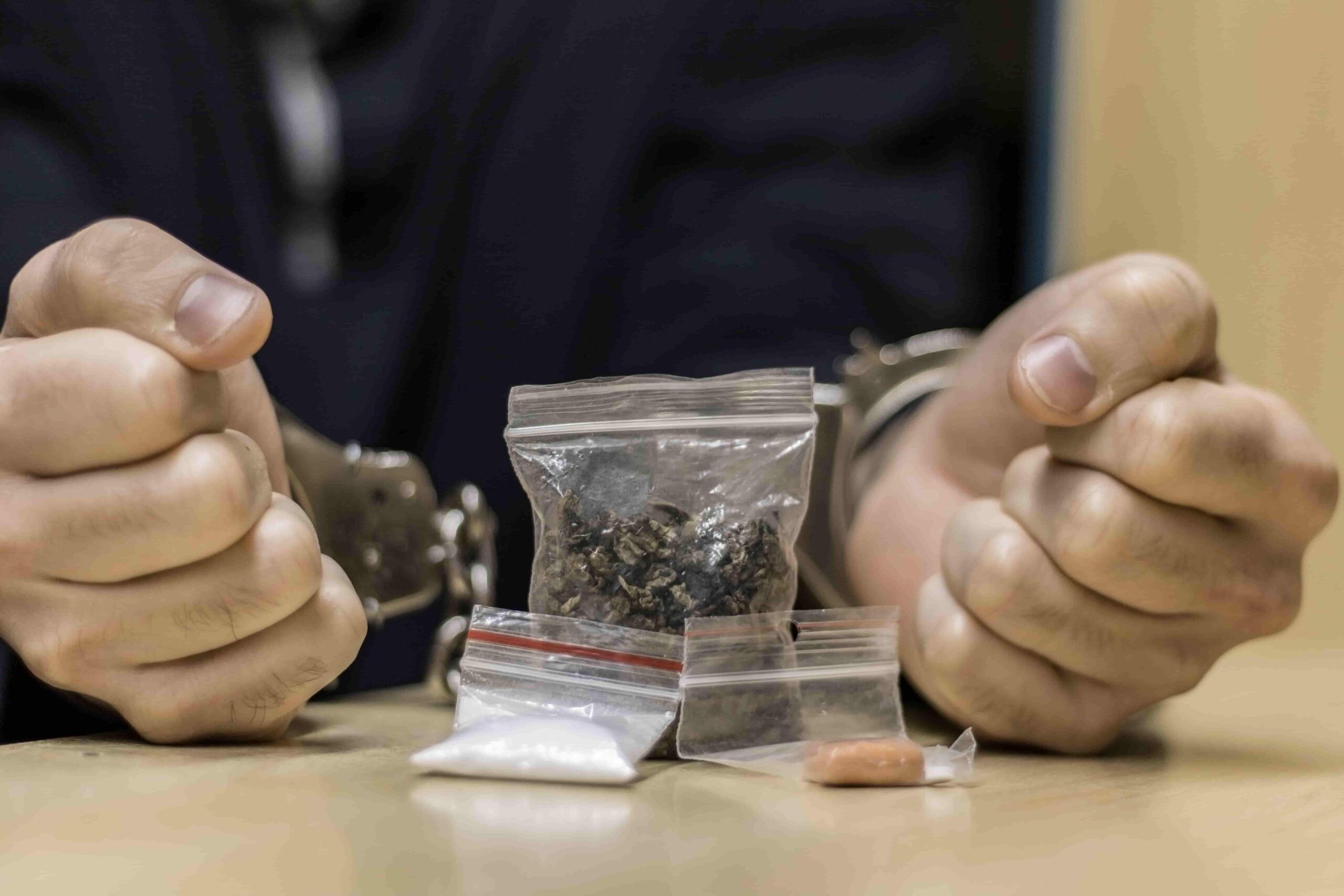Types of Drug Charges: Possession, Distribution, Trafficking, and Manufacturing
By Nathaniel Pitoniak on September 1st, 2025 in Drug Crimes
Getting arrested for a drug offense in Houston, TX, or learning that a loved one has been taken into custody, can cause fear, confusion, and uncertainty about the future. The stakes are high, and each decision you make matters.
Types of drug charges vary in severity, but every case deserves immediate and focused legal attention. The sooner you speak with a knowledgeable drug crimes defense attorney near you, the sooner you can begin protecting your rights.
Contact a lawyer promptly for a confidential consultation to discuss your situation and start building a defense.
Understanding the Four Main Categories of Drug Charges in Texas
Texas law groups drug offenses into several categories, each carrying different penalties and legal standards. While many people think of “possession” as the most common charge, others, such as distribution, trafficking, and manufacturing, can result in far harsher sentences. The nature of the alleged conduct, the type and amount of drugs, and other factors will determine how prosecutors charge the case.
Possession Charges
Possession means having illegal drugs under your control. This doesn’t always mean the drugs were in your pocket or hand. Police often charge people with possession when the drugs were in a vehicle, home, or other space the person controlled. Possession can be actual, where the drugs are physically on you, or constructive, where you have access to them and the ability to control them.
For example, someone may face possession charges if drugs are found in the glove compartment of their car, even if they weren’t physically touching them. Prosecutors must prove you knew the drugs were there and that you had control over them.
Distribution Charges
Distribution refers to transferring or delivering drugs to another person. This doesn’t require a large-scale operation. Even giving a small amount of a controlled substance to a friend can lead to a distribution charge. Law enforcement often uses undercover officers or confidential informants to catch people suspected of selling drugs.
Distribution charges can be filed even if no money changes hands. The act of giving away or delivering drugs can still be prosecuted under Texas law.
Trafficking Charges
Trafficking generally involves transporting or moving large amounts of illegal drugs. The term often applies to organized activities, such as moving narcotics across county or state lines. While trafficking is sometimes confused with distribution, trafficking usually involves more substantial quantities and harsher sentencing ranges.
A person may face trafficking charges for shipping drugs, driving them across Texas, or even arranging transportation for someone else.
Manufacturing Charges
Manufacturing involves producing illegal drugs or substances. This can include growing marijuana plants, running a meth lab, or chemically producing synthetic drugs. Texas law also covers the possession of equipment, chemicals, or materials used in drug production.
Someone caught with large quantities of certain chemicals, combined with evidence of intent to produce drugs, could be charged even if no finished product was found.
What Are the Penalties for Drug Possession Charges?
Possession penalties depend on the type of drug, the quantity, and the person’s prior record. In Texas, controlled substances are classified into penalty groups, and each group has its own sentencing structure.
Misdemeanor vs. Felony Possession
Small amounts of certain drugs may lead to misdemeanor charges, which carry lighter penalties, such as fines and short jail terms. Larger amounts or more dangerous drugs often lead to felony charges, which can mean years in prison. The difference between a misdemeanor and felony often depends on drug type, quantity, and whether the person has prior convictions.
Factors That Influence Sentencing
Judges and prosecutors look at several factors when deciding on a sentence. The type of drug plays a major role, as do the quantity, location of arrest, and any evidence of intent to distribute. The presence of weapons, cash, or scales can increase the severity of the penalty.
First-Time Offender Considerations
Some first-time offenders may be eligible for diversion programs or reduced sentences. These alternatives can involve probation, treatment, or community service instead of jail time. However, these options depend on the facts of the case and the willingness of the prosecutor.
Drug Distribution and Sales: What You Need to Know
Distribution charges often carry more severe penalties than simple possession, especially if there’s evidence of repeated sales or large quantities.
Elements the Prosecution Must Prove
To convict someone of distribution, prosecutors must show that the person knowingly delivered or intended to deliver drugs. Evidence may include surveillance, recorded conversations, or controlled buys involving undercover officers.
Difference Between Distribution and Possession with Intent
Possession with intent to distribute means having drugs along with evidence showing you planned to sell them. This might include packaging materials, large amounts of cash, or text messages arranging sales. You don’t need to be caught in the act of selling to be charged with intent to distribute.
Enhanced Penalties for Distribution Near Schools
Texas law increases penalties for distribution offenses committed near schools, playgrounds, or other areas where children are present. This can add years to a prison sentence, even for a small amount of drugs.
How Does Drug Trafficking Differ from Distribution?
Trafficking is considered more serious than distribution because it often involves larger quantities, broader networks, and crossing jurisdictional boundaries.
Federal vs. State Trafficking Charges
Trafficking cases may be prosecuted at either the state or federal level. Federal cases often carry mandatory minimum sentences, especially for large quantities or repeat offenders. Federal prosecutors may also seek asset forfeiture, taking property believed to be linked to the crime.
Mandatory Minimum Sentences
Mandatory minimums remove much of a judge’s discretion. Once convicted, the sentence must meet or exceed a set number of years. These laws aim to deter large-scale drug operations but can lead to lengthy sentences even for those with smaller roles.
Interstate and International Implications
Moving drugs across state lines triggers federal jurisdiction. International trafficking brings even more severe penalties and can involve agencies like the DEA, FBI, or Homeland Security.
Drug Manufacturing Charges Explained
Manufacturing cases often involve lengthy investigations and significant evidence collection.
Types of Manufacturing Operations
Some manufacturing operations are large and sophisticated, such as meth labs or clandestine pill presses. Others are smaller, like a home grow operation for marijuana. Regardless of size, manufacturing is treated as a serious felony.
Equipment and Chemical Possession Laws
Texas law prohibits not only the production of drugs but also the possession of equipment or chemicals with the intent to produce. This means someone could face charges without actual drugs being present if prosecutors can show intent.
Conspiracy Charges in Manufacturing Cases
Conspiracy laws allow prosecutors to charge people who agree to participate in manufacturing, even if no drugs were produced. Phone calls, messages, or supply purchases can be used as evidence.
What Factors Determine the Severity of Drug Charges?
Several elements influence the seriousness of a drug charge.
Type and Schedule of Controlled Substance
Texas follows a scheduling system similar to the federal government. Schedule I drugs, such as heroin, are considered the most dangerous and carry the highest penalties.
Quantity of Drugs Involved
Even a small increase in drug weight can move a case into a higher penalty range. Prosecutors often focus heavily on weight to justify tougher sentences.
Criminal History and Prior Convictions
Prior convictions, especially for drug offenses, can increase penalties. Repeat offenders often face harsher treatment under habitual offender laws.
Location of the Alleged Crime
Offenses near schools, parks, or certain public areas often bring enhanced sentencing provisions.
How Can Prior Convictions Affect Your Case?
Prior convictions often raise the stakes in a drug case. Prosecutors see repeat offenses as a sign that lighter penalties didn’t deter the behavior, so they may push for tougher sentencing. Judges also have less flexibility when certain sentencing laws apply to defendants with a criminal history.
Three Strikes Laws and Habitual Offender Statutes
Texas has laws that increase penalties for repeat offenders, sometimes referred to as habitual offender statutes. Under these laws, a person with two or more prior felony convictions may face a much longer prison term for a new felony, even if the current charge would normally carry a shorter sentence. In the most serious cases, a “three strikes” rule could mean decades in prison.
Enhanced Sentencing Guidelines
A prior conviction can trigger sentencing enhancements, adding years to a prison term or raising the minimum sentence a judge must impose. These guidelines apply even if the prior offense was for a different type of crime, as long as it meets the statute’s criteria.
Options for Defendants with Criminal History
While prior convictions create serious hurdles, defendants aren’t without options. An attorney can still negotiate plea agreements, argue for reduced charges, or request alternative sentencing. For example, participation in drug treatment programs or community supervision may be possible in some cases. The strength of these options often depends on the specifics of the prior record and the current charges.
Common Defenses in Drug Cases
Defense strategies depend on the facts but often focus on police conduct and the strength of the prosecution’s evidence.
- Fourth Amendment Violations and Illegal Searches: If police searched without a warrant or valid exception, the evidence may be excluded.
- Chain of Custody Issues: Prosecutors must show an unbroken chain of custody for evidence. Breaks in this chain can weaken the case.
- Entrapment and Law Enforcement Misconduct: If law enforcement induced someone to commit a crime they wouldn’t have otherwise committed, entrapment may apply.
- Lack of Knowledge or Intent: If you didn’t know the drugs were present or didn’t intend to possess them, the prosecution’s case may fall apart.
How a Criminal Defense Attorney Can Help Your Drug Case
A skilled defense attorney offers more than just court representation.
- Case Investigation and Evidence Review: Attorneys dig into the evidence, looking for errors or inconsistencies.
- Negotiating Plea Agreements: A plea deal might reduce charges or penalties, especially when the evidence is strong.
- Challenging Evidence and Procedural Violations: Evidence obtained illegally can be suppressed, weakening the prosecution’s case.
- Exploring Alternative Sentencing Options: Attorneys can seek probation, treatment, or community service instead of jail time.
The Importance of Early Legal Representation
Hiring a lawyer quickly gives you a better chance at a favorable outcome.
- Protecting Your Rights During the Investigation: A lawyer ensures law enforcement follows the law from the start.
- Avoiding Self-Incrimination: An attorney helps you avoid making statements that harm your case.
- Building a Strong Defense Strategy: Early involvement allows your lawyer to prepare a targeted defense.
How the Law Office of Nathaniel Pitoniak Can Help
Nathaniel Pitoniak brings more than 17 years of experience to each case. As a former prosecutor in Harris County, he understands how the other side builds its case. He provides personalized attention, focusing on the details that matter most to your defense. His dedication to justice shows in his track record of successful outcomes for clients. When your future is on the line, you need a defense attorney committed to protecting your rights.
Frequently Asked Questions About Houston Drug Charges
Can I be charged with possession if the drugs weren’t mine?
Yes, if prosecutors believe you had control over or access to the drugs, even if they belonged to someone else.
What happens if I’m caught with prescription drugs without a prescription?
Possession of prescription medication without a valid prescription can lead to criminal charges.
Is medical marijuana legal in all states?
No, marijuana laws vary widely. Texas has strict limits on medical marijuana use.
Can drug charges be expunged from my record?
Some charges may qualify for expungement or sealing, but eligibility depends on the case.
What’s the difference between state and federal drug charges?
State charges are prosecuted under Texas law, while federal charges involve violations of U.S. law, often with harsher penalties.
Let a Skilled Defense Attorney in Houston Protect Your Rights and Future
When accused of a drug offense, you need strong legal representation immediately. The Law Office of Nathaniel Pitoniak offers the experience, focused defense, and personal attention you deserve. Contact our firm today for a confidential consultation and start protecting your future.




